#Chinese parable
Explore tagged Tumblr posts
Text
Did you know? The farmer and the horse story told in "The Sign" is a real Chinese parable. It promotes the Taoist views on good and bad luck.
Long ago, there was a widowed Chinese farmer. The farmer and his only son labored through the cold winds of winter and scorching rays of summer with their last remaining horse. One day, the son didn’t lock the gate of the stable properly, and the horse bolted away. When neighbors learned what happened, they came to the farmer and said, “What a sadness this is! Without your horse, you’ll be unable to maintain the farm. What a failure that your son did not lock the gate properly! This is a great tragedy!” The farmer replied, “Maybe yes, maybe no.”
135 notes
·
View notes
Text
There was an old man who had a beautiful horse. This horse was not only his family’s pride and joy, but it was also a means to an income for the family.
One day, the horse ran away. Fellow villagers visited the old man to give their condolences for such a stroke of bad luck, as the loss of his horse represented a staggering financial blow that would be hard to recover from.
“Good luck, bad luck: Who can tell?” replied the old man. “It is as it is. My horse is gone.”
Perplexed at the man’s nonchalance towards the apparent tragedy, the villagers went about their business.
A few days later, the horse returned with a pack of 12 wild horses in tow. Again the villagers gathered, this time to offer their congratulations at such a stroke of good luck. Now he had 12 more horses with which to make 12 times the income! What a godsend, they said.
“Good luck, bad luck: Who can tell?” replied the old man again. “All I see is that 12 more horses have appeared.”
The next week, while breaking in one of the wild horses, the old man’s son fell and both his legs were broken. What bad luck! The villagers exclaimed. Your son has broken both of his legs. That’s terrible. How will you get your work done? You are too old to do it yourself.
“Good luck, bad luck: Who can tell?” was the (now predictable and equally frustrating) answer of the old man. “My son has broken his legs. That is all I know.”
Shortly thereafter, the government forcibly removed all the able-bodied men from the village, as the country had gone to war. The old man’s son, however, was spared since his legs were broken.
Good luck, bad luck: Who can tell?
Source: Wise Bread
1 note
·
View note
Text
@braisedhoney *汉服-ifies your narrator*
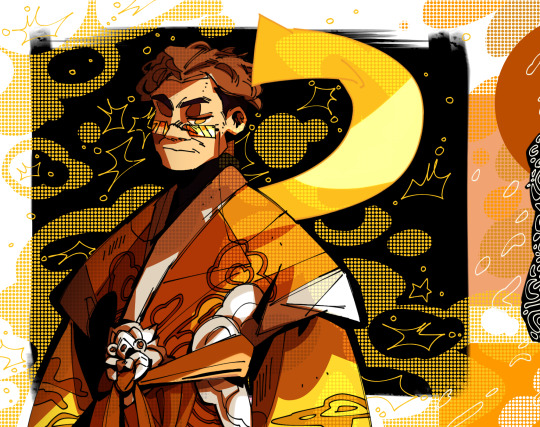
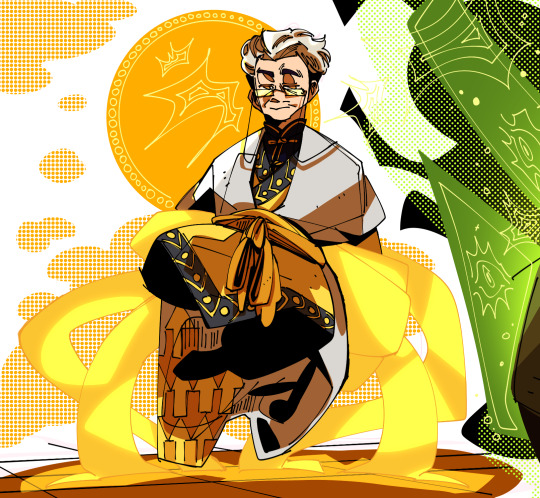
I had no choice, I thought his jacket was like a 袍服 and then my ancestors suddenly held me at gunpoint as I drew
#i tried my best i hope you like it!!#i just think hes neat#your art is so cool!!#tsp#tspud#the stanley parable#the stanley parable ultra deluxe#tsp narrator#narratorverse#tsp fanart#hanfu#chinese hanfu#汉服#sketchbook#digital art#sketch#drawing#art#artists on tumblr
233 notes
·
View notes
Text
my headcanon is that Stanley from The Stanley Parable works in the Chinese room
4 notes
·
View notes
Text
#Regina Linke \#Chinese style goiaba painting#confusion#buddism#parables#compassion#community#friendship
2 notes
·
View notes
Text
Two Mountains Crumbling in Daylight
(Manichaean poem inspired by the old Chinese parable: "The Foolish Old Man Removes the Mountains")
Eons ago, near two flowing rivers in old China
Lived an old, white clothed man ninety-nine years of age
Who glared at two mountains he knew from his long-dead childhood
Who glared at the giants he always had dreams of
The first was a mist covered mountain, where all beasts were blind
With whispers of meaningless legends and theories
The second was a fiery mountain singing in passion
With trees and bushes with golden leaves, but no fruit
Both these mountains trapped the souls of the damned under the dirt
Both buried the light in the damp cyclical tomb
The souls were angels who defended their land from the night
Horsemen who guarded against the Prince of Darkness
The inner soul of light within the old man awakened
The youthful hoopoe bird within chirped for freedom
He began his work, to dig into the mountains themselves
He started to craft a path for all to travel
A wiser old man came up and saw the sweat raining down
And chuckled at the absurdity raining down
“Oh friend, you cannot remove one grey hair from the giants
How in heaven’s name can you crumble these mountains”
The foolish grey-haired man, singing and young in his caged heart
Said these words, roaring with his liberated mind
“My children shall tear the mountains by their blood-covered hand
My grandchildren shall destroy them with their chisels
My offspring will fight as unsleeping armies in the night
My offspring will never surrender their grand fight
The birds of the blue sky will peck the mountains piece by piece
The worms of earth will eat the fortress bit by bit”
These words reached the wise man’s inner heart beating with wonder
These words reached the sun and moon’s delicate bright souls
So the ships of light carried the message to the blue sky
The Infinite Father of Greatness and Lightness
The blue sky ripped apart the revolving grey clouds of might
The expanse of azure blue split all into two
Daylight shone in the highest firmament of dark violet
Daylight shone in the lowest crannies of Sheol
These two mountains vanished as if they were nothing at all
These two watchtowers crumbled in the gentle flames
Leaving no fortresses between the two flowing rivers
Leaving only an untouched garden, eons old
#poetry#poets on tumblr#poem#spiritual#spiritualinspiration#china#parable#perseverance#hope#chinese culture#determination#hard work#spiritual poetry#spirituality#nature poem#nature#mountains#daylight#symbolism#metaphor#metaphorically
4 notes
·
View notes
Text
Writing Reference: Alchemy
Some scholars say alchemy comes from the Greek cheo, meaning “I pour” or “I cast,” since much of alchemy has to do with the working of metals.
But many believe the word comes from the Egyptian Khem, meaning “the black land” (land with black earth), and see that as indicating Egypt as alchemy’s place of origin:
The Arabic article al was added to Khem to give alchemy.
Alchemy is an ancient art, at the heart of which lies the manufacture of a mysterious substance called the Philosopher’s Stone.
Later, as the science (some call it a pseudoscience) progressed, the article was again dropped, to become chemistry.
Alchemy certainly is the early history of chemistry.

The Philosopher's Stone - the highly desirable and legendary object that is said to transform base metals—such as lead—into gold.
However, the gold in this instance symbolizes not just the valuable metal, but enlightenment and eternal life, and Alchemists are concerned with their own spiritual and personal development as well as the pursuit of the seemingly unattainable goal.

The Chinese differentiate these different kinds of alchemy as nei-tan (the alchemy of spiritual transformation) and waitan (the straightforward “lead-into-gold” type).
The motto of the Alchemists is Solve et Coagula, meaning “Solution and Coagulation.”
The work of the early Alchemists was necessarily a secretive and clandestine matter, and its secrets are still held within a rich encrustation of symbols, pictures, oblique references, double meanings, and riddles.
Alchemical symbolism features animals, birds, colors, and parables as well as archetypal symbols such as the Cosmic Egg.
The key tenets of alchemy are encompassed in something called the Smaragdina Tablet, or the Emerald Tablet.

The tablet is said to have been found by Alexander the Great in the tomb of Hermes Trismegistus (Hermes the Thrice Great) who is the founder of all things alchemical.
The Alchemical Tradition exists/existed in Ancient Egypt, China, and India, but its most recent incarnation was in medieval Europe.
Those who dabbled in alchemy include the famous and the infamous, such as John Dee (astrologer to Queen Elizabeth I), Paracelsus, Albertus Magnus, Christian Rosenkreuz, Nicholas Flamel, and Isaac Newton.
Some of the chemical treatises are befuddling to even the most learned of scholars, but the very word “alchemy” is almost in itself a symbol, conjuring up images that are magical, mystical, and marvelous.

Sources: 1 2 3 4 ⚜ Writing Notes & References
#writing reference#alchemy#symbols#writeblr#langblr#linguistics#literature#fantasy#writers on tumblr#writing prompt#poetry#poets on tumblr#spilled ink#dark academia#light academia#lit#writing inspiration#writing inspo#writing ideas#creative writing#writing resources
344 notes
·
View notes
Text

The Folks behind the Toons
Glen Keane
Glen Keane was born in Philadelphia, the son of cartoonist Bil Keane and Australian-born Thelma Keane. He grew up in Paradise Valley, Arizona. His interest in cartoons and animation was born out of watching his father work on his syndicated newspaper cartoon, Family Circus.

Keane's father based his Family Circus character of Billy on Glen's younger self. To further foster Glen interests in the arts, his father gave him a copy of Burne Hogarth's Dynamic Anatomy, and recommended he observe body forms and practice creative approaches to life drawing.

Following high school, Keane turned down a football scholarship to pursue animation at the California Institute of the Arts. Here he was mentored by Jules Engel and graduated in 1974. He earned employment at Disney where he acted as a character designer, working on the films The Rescuers, Pete's Dragon, and The Fox and the Hound.

Around this time, Keane fell in love with Linda Hesselroth. The pair married in 1975 and would have two children both of whom would eventually also go into the fields of illustration and animation.
While at Disney, Keane began to experiment with innovations in animation utilizing computers. Working alongside fellow animator John Lasseter, Keane created a digitally rendered adaptation of a scene from Maurice Sendak's Where the Wild Things Are. While Disney was impressed, the studio ultimately chose not to pursue the project. Lasseter meanwhile went on to help found Pixar.

Keane continued on at Disney albeit as a freelance animator. He worked on character designs and action sequences for The Great Mouse Detective, The Chipmunk Adventure and Oliver & Company.

In the late 1980s, Keane signed on to Disney’s The Little Mermaid, designing and animating the character of Princess Ariel. Released in 1989, The Little Mermaid was a smash hit that revitalized Disney as a major force in Hollywood. Keane was suddenly a hot commodity and he was tapped as the supervising animator for the title characters of the three Disney hit features Beauty and the Beast, Aladdin, and Pocahontas.

Relocating to Paris, France, Keane continued doing animation and character design for Disney. He acted as the lead animator for the main characters in Tarzan and Treasure Planet.

In 2003, he began work as the director of Disney's animated film Tangled. Keane and his team strove to bring the style and warmth of traditional animation its computerized counterpart. Health difficulties caused Keane to step away from directing Tangled and the team of Nathan Greno and Byron Howard came on board to to replace him. While recovering from his illness, Keane remained the movie's executive producer and animating supervisor.

Keane left Disney in 2012 and entered into a partnership with Motorola's Advanced Technology, aiding engineers in creating interactive hand-drawn animation. He continued to work on short films exploring new innovations in combining traditional animation with digital advancements. Along with his work in these endeavors, Keane additionally created a series of illustrated children's books based on Bible parables, featuring the characters Adam Raccoon and King Aren the Lion.


Returning to directing, Keane helmed the Chinese animated film Over the Moon, about a girl who builds a rocket and flies to the moon to meet a legendary moon goddess. Written by Audrey Wells, produced by Pearl Studio, and animated by Sony Pictures Imageworks, Over The Moon was released on Netflix in October of 2020.

At the 2018 Oscars, Keane shared the Academy Award for Best Animated Short Film with Kobe Bryant for the short, Dear Basketball. This was a film based on a poem Bryant wrote regarding his retirement from professional basketball. Keane directed the short alongside Bryant. Bryant tragically died two years later and Dear Basketball became a key facet to many memorials.

Now in semi-retirement, Keane resides with his family in Philadelphia.

#Cartoon Heroes#Glen Keane#folks behind the toons#Family Circus#little mermaid#treasure planet#tangled#over the moon#kobe bryant#dear basketball
31 notes
·
View notes
Text
Many, although most concern a desire the change the world around you rather than a great change of the self.
There are exceptions though, I remember once seeing a masked play that depicted the Fool who awoke one morning with a sudden great pain of the self: they had been tricked and awoke one morning with a new life, and one they had found quite foreign to them.
They lived the life they were given but felt themselves missing what they had left behind. Their hands shaped to their work, as the Fool is quick to learn. Their peers became their friends, as the Fool is easy to bond. But their new life was haunted by the specter of what had come before. They found themselves seeking out a way to go back, and so sought out aid.
First they found the Harlequin, that changer of faces, who told the Fool that they had been tricked: the night before the Fool had played thrones deep into the early hours with the Harlequin, wine flowing, and had joked that they did not get to venture out enough and wished to see something new. The Harlequin granted them their wish, and now offered them another new face.
The Fool felt despondent. They asked instead for their old face, and the Harlequin deliberated. This was not within the Harlequin's power, for the Harlequin delivers the new and the illusory. They said that they can offer the Fool a mask, but cannot unmask them. The Fool pondered this, and then offered the Harlequin thanks, for the Harlequin had meant to aid even as they doomed the Fool to this loss.
Then the Fool sought out the Magus.
The Magus saw into the Fool and knew what had happened at once. The Fool got on their knees and begged, for who else but the Magus could remove the Harlequin's tricks. And so the Magus told the Fool of what they saw beneath the mask: the full story of the Fool's former life, their family, and how that family is doing without them. Happy that the Magus could unmask them, the Fool asked the Magus to remove the mask, and the Magus declined. They can see beneath the mask, sure, but the Magus is a shaper of knowledge, not of the world.
As an apology, the Magus pointed their finger towards the Pathfinder. They could guide the Fool home, but beware, for the home they return to may not be the home they've left. The Fool took heed of this warning, but listened more strongly to the sharp pang of sorrow they had felt at the loss of their family. They thanked the Magus for their wisdom, and for the warning, and traveled forward to the Pathfinder.
Finally, the Pathfinder stood, lantern high, to greet the Fool. They knew what the Fool wished to find, and knew how to strip the Fool of that mask. But they warned that time had passed without them, and the Pathfinder only knew how to return in space and not in time.
The Fool asked to have the mask lifted anyway, and the Pathfinder obliged. The light of the lantern made the edges of the mask clear, and the Pathfinder removed the mask and set the Fool on their path.
The Fool returned home to found their children died from age and their grandchildren adult and foreign. They were home, but knew not what home they had returned to. The sorrow at the loss was gone, but replaced with a new one at the time they had missed, for they were a stranger anew in their old home.
At last the Fool sought out the Builder, whose hands had aided in shaping the streets that the Fool no longer knew. They told them of their journey, and the dilemma they found themselves in. They went off to find adventure, wished for home, and found home a new land they are a stranger in. They asked the Builder how they withstand the change, and the Builder looked upon the Fool and offered them a chisel and a hammer.
The Fool was at first concerned and then joined the Builder in their work. In time the Fool saw the work of their hands in the buildings around them, and felt home become familiar again, if only for the world they had carved from it.
I admit that I don't know if this story would help you, for I feel it is about a different problem from the one you face, but I offer it on the chance that it helps.
HAPPY PRIDE MONTH.
I FUCK WOMEN.
#however i'm pretty sure this is a parable about the risks of interstellar travel#there are many of these from back before the blinkgates#much of our infrastructure is built around this and it is a thing you teach children before offering them opportunities off world#and how it alters your perception of time#lancer rp#ooc: for note- masked plays are a headcanon religious play type thing where the Passions are kind of used to tell parables/fables#ooc: somewhere between commedia del arte and religious plays although i've mentally mixed some chinese opera styles in there too#ooc: actors for these plays are actors with particularly a strong solar bonds to the Passion they're portraying#ooc: and as the name suggests the actors wear elaborate masks depicting the Passions#ooc: anyway have a fisherman of the inland sea ass parable that i imagine is quite old#ooc: i was reaching for fables that i know would exist and that nera would reach for and ended up here#journal entries#ooc: also thank you oshit-r for letting me be this kind of annoying on your post
21 notes
·
View notes
Text
🚨 SPOILER WARNING 🚨for Better Call Saul ⚖️ 🏛️💼
Confucius was so pained by the death of his disciple Yan Hui that he exclaimed, "Oh! Heaven has bereft me! Heaven has bereft me!" (Analects 11:9). It was 481 BC (Malaysian Han Studies), the same year that the ancient Chinese narrative history Zuo Zhuan tells us that hunters in "the west, the great wilds" (Durrant et al., 243) captured a lin -- a mythological creature sometimes called the "Chinese unicorn" (Taylor). The appearance of a lin was considered "miraculous and prophetic," (Durrant et al., 243), but the no one was able to identify the lin until it was brought before Confucius.
I have been unable to consult the complete text of the Zuo Zhuan, but Durrant et al.'s abridged version does not clarify whether the encounter with a unicorn came before or after Yan Hui's death.
Is this story about magic interrupting grief? When Confucius says, "It is a lin" (Durrant et al., 243) and nothing more, does his brevity suggest that he has other burdens on his mind? While the tale undeniably exemplifies his "broad learning," (Durrant et al. 242), it might also serve as an instructive parable about grief. While there are those who caution against studying the biographies of philosophers at the expense of actual philosophy, in the case of Confucius, "the biographical... is philosophical" because his life "display[s] [his] ideas incarnate" (Olberding 283). His grief for Yan Hui is particularly important because its magnitude is so "uncharacteristic" (Olberding, 296). In Confucian philosophy, grief is not merely something we experience or endure -- it is "a measure of our having lived well and richly" (Olberding 283). Perhaps the story of the lin -- a unicorn that elicits no awe -- dramatizes the power of Confucius' all-consuming grief, and, therefore, the richness of his life.
Or is it an ironic tale about an omen gone wrong? What if hunters found the unicorn before Yan Hui died? After all, the lin was an "auspicious omen" and "herald [of] future greatness" (Taylor). Perhaps Confucius was not excited because he did not care about mythology: although he "didn’t reject the supernatural... he chose to focus and emphasis the development of the natural world and humans’ role in" it (Havens 35). If the omen did not actually signify the future, that certainly suggest time is better spent focusing on human life, on human love -- which would make the death of a student all the more painful.
Lalo kills Howard in Saul's apartment ("Plan and Execution," 48:40).
Bibliography
Confucius. Analects : With Selections from Traditional Commentaries. Translated by Edward G Slingerland. Indianapolis ; Cambridge: Hackett, 2003.
Durrant, Stephen W., Wai-yee Li, and David Schaberg. The Zuo Tradition/Zuozhuan Reader : Selections from China’s Earliest Narrative History. Seattle: University of Washington Press, 2020.
Havens, Timothy. “Confucianism as Humanism.” CLA Journal 1 (2013): 33–41. https://uca.edu/cahss/files/2020/07/Confucianism-as-Humanism.pdf.
Malaysian Han Studies. “Yan Hui – MAHANS,” n.d. https://mahans.edu.my/yanhui-eng/.
Olberding, Amy. “The Consummation of Sorrow: An Analysis of Confucius’ Grief for Yan Hui.” Philosophy East and West 54, no. 3 (2004): 279–301. https://doi.org/10.1353/pew.2004.0020.
Schnuaz, Thomas. “Better Call Saul.” AMC, May 23, 2022.
Taylor, Joanne. “Qilin (Chinese Unicorn).” World History Encyclopedia, May 22, 2024. https://www.worldhistory.org/Qilin/.
19 notes
·
View notes
Text
👁️INTRO POST👁️
Meet the artist!
Last updated: dec 24 '24
ASKS ARE OFF UNTIL DEC 28TH
Hi! I'm Eyez or Ken or Margo! My pronouns are he/him🏳️⚧️!!
I am a minor so please take that to mind when you talk to me, like, please don't be weird if your 18+
(purple: what I like most)
I like Pepsi and mt. Dew ����
Insta: eyecantibal
discord: eyecantibal
Art archive side blog: eyezreblogz

pfp by @/whattheheckins
DNI: Homophobes, Transphobes, p3dos, pr0shippers, racists, bigots, fascists, people who make AI "art", and other idiots
DO NOT, I REPEAT, DO NOT REPOST MY ART WITHOUT CREDIT.
I believe in peace and freedom for every country (ESPECIALLY FOR THOSE IN NEED RIGHT NOW!🍉)

✏️What I post!: Art, music rants, random thoughts, and reblogs
Link to my ocs master post: https://eyezdrawz.tumblr.com/post/763241944591761408/oc-master-post
❤️Main interest!:
Camp here and there (my fav podcast and this is what I mainly draw/write about) (finished podcast)
Malevolent (two episodes i need to listen to)
TMA (finished podcast) (not caught up with tmagp)
Old gods of Appalachia (need to relisten to)
Interview with the vampire (TV show and movie, currently ready the books)
Hannibal NBC
Midnight Mass
Joker (2019)
The Stanley parable
FNAF
BG3
Dead plate
8:11
Tokyo ghoul
vampires
Cowboys
Vulture Culture/Bones
Heavy Gore/blood/body horror/Eldritch horror
Ocs (Santiago, Mikeal, Andias, and Bernadette)
And more!
🎵Music I listen to!
Will wood/will wood and the tapeworms (fav artist)
The Dear Hunter
Shayfer james
Amigo the devil
System of a down
The Hush sound
Hozier
Penelope Scott
Bear ghost
Tally Hall (and other tally hall related bands/members/projects)
Chonny Jash
And more!

All of my special interests/fixations: vampires, gore, gothic lit, bones, vulture culture, my favorite animals (deer, vampire deer (Siberian musk deer/Chinese water deer, wolves, hyenas, shrikes, maned wolves) human anatomy+medical terms and examination
Characters I relate too:
Armand from iwtv (I kin him so much it's not normal)
will graham from Hannibal
the butcher from malevolent
John doe from malevolent
Arther Fleck from joker 2019

random blinkies I like✌️: (i did not make these blinkies, all credits go to the people who made these) (chnt hourglass blinkie made by @/delicatecentipede)



















Are you a writer? A poet? An artist? A singer? A creative person? Consider joining the poets discord! (14+)
https://discord.com/invite/nvq4nRkkXx
#intro post#introduction#blog intro#discord server#tally hall#will wood#the dear hunter#camp here and there#tma#malevolent#Last updated: dec 24 2024#penelope scott#amigo the devil#will wood and the tapeworms#artist on tumblr#my art
65 notes
·
View notes
Text
Becoming Monstrous: Yurikuma Arashi and transmisogyny in the school system
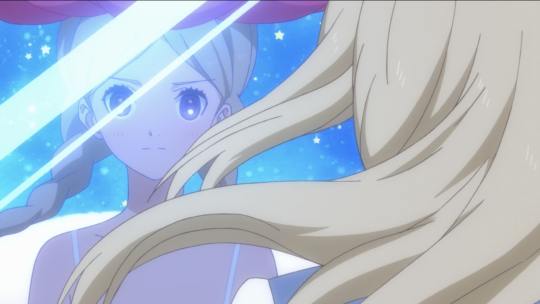
Content Warning: Discussion of queer/transphobia (including slurs), online and workplace harassment, grooming, systemic violence
Spoilers for Yurikuma Arashi, referenced spoilers for Puella Magi Madoka Magica
“This is the nature of systems: the moment you reject them, you are forced to realize that they’re the very ground you’re standing on.” -Ikuhara Kunihiko
Two bears are presented with a choice: will you be invisible, or will you eat humans? They look like teddy bears, and they are on trial. wo girl bears–two lesbian girls–Ginko and Lily, standing before three male judges deciding whether or not they should have the right to exist. In order to have their love approved, they declare: they will eat humans. They transform, taking on human form as they don hypersexualized bear girl outfits, and they enter the world of the school.
Yurikuma Arashi places this strange set-piece towards the middle of its first three episodes. It exemplifies the show’s style, told as it is in enigmatic parables. Ostensibly, Yurikuma is about a human girl named Kureha seeking answers about the deaths of her mother and girlfriend while getting into a love triangle involving the two bears who have infiltrated her school disguised as humans.
However, everything in Yurikuma Arashi is more symbol than literal representation, and I have often mulled over its meaning as I’ve navigated entering the teaching profession as a nonbinary Chinese person. Like the bears, I’ve often asked myself: what do I sacrifice to be allowed to exist within the school?
Read it at Anime Feminist!
147 notes
·
View notes
Text
unexpected 成語 (idiom) lesson on
Bluey ~ The Sign (S03?E49?) 🙀😻
The story that Calypso was reading to Bluey's class? That is the story behind the Chinese idiom,
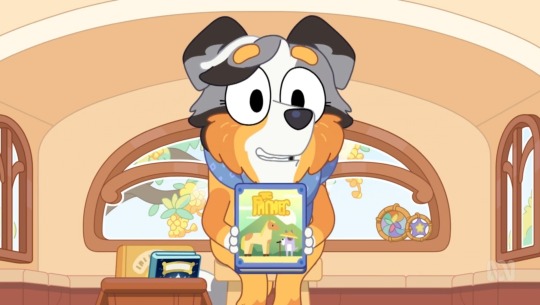
塞翁失馬 [焉/安知非福]
usually, only the first part (塞翁失馬) is uttered in practical use
🇭🇰🇲🇴 coi³ jung¹ sat¹ maa⁵ [jin¹/on¹ zi¹ fei¹ fuk¹]
🀄 ㄙㄞˋ ㄨㄥ ㄕ ㄇㄚˇ [ㄧㄢ/ㄢ ㄓ ㄈㄟ ㄈㄨˊ]
🀄 sài wēng shī mǎ [yān/ān zhī fēi fú]
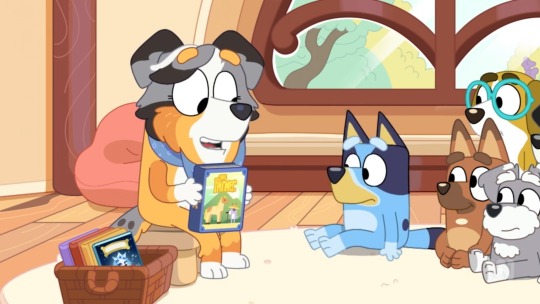
Literal meaning: The old man of the frontier lost his horse (how could he know if this is not fortuitous?)
Meaning: Similar to the sayings, “a blessing in disguise”, “every cloud has a silver lining”.
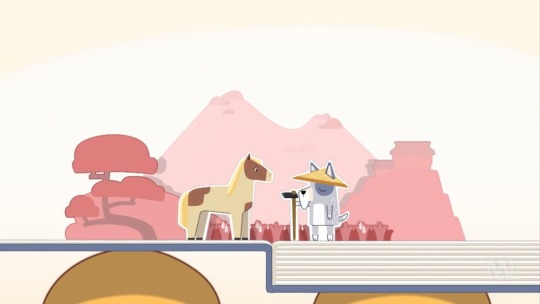
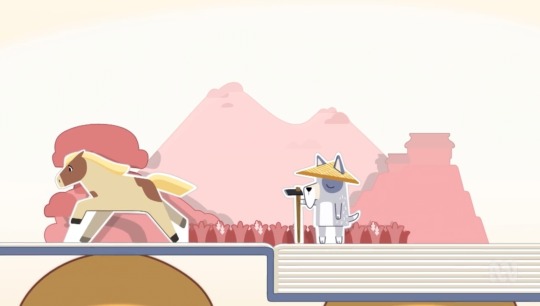
And there's actually a Wiki entry for this! Quote from Wiki:
“One of the most famous parables from the Huainanzi (淮南子; 'Master of Huainan'), chapter 18 (人間訓; Rénjiānxùn; 'In the World of Man') dating to the 2nd century B.C. The story exemplifies the view of Taoism regarding "fortune" ("good luck") and "misfortune" ("bad luck").
The story is well-known throughout the East Asian cultural sphere and is often invoked to express the idea of "silver lining" or "blessing in disguise" in Chinese, Vietnamese, Korean, and Japanese.”
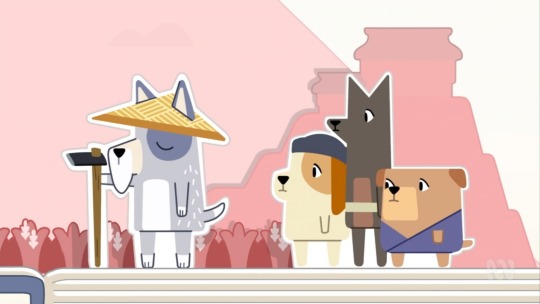
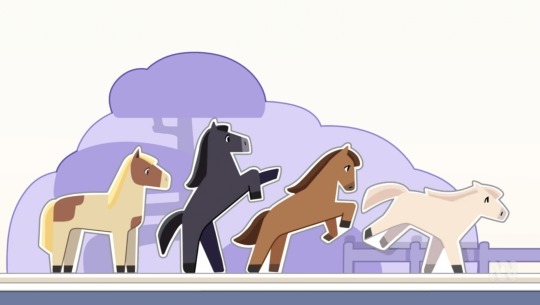
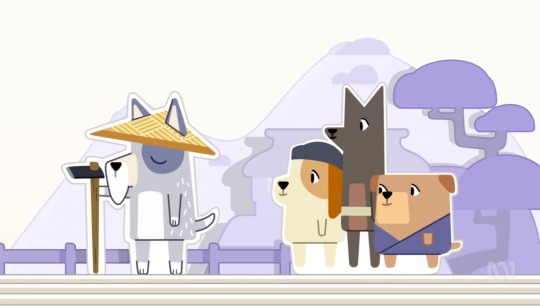
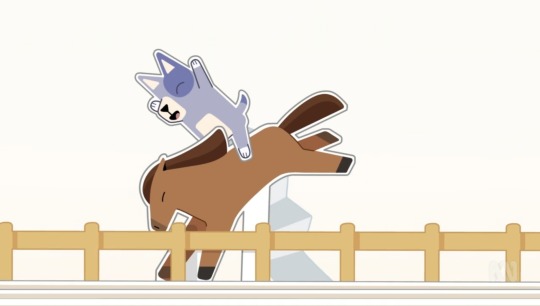
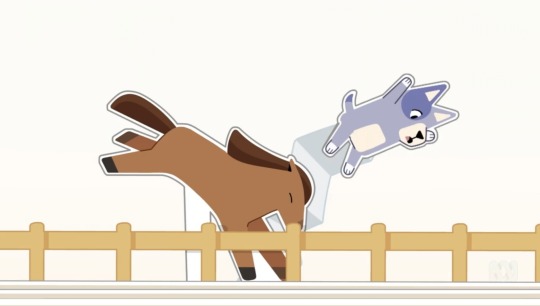
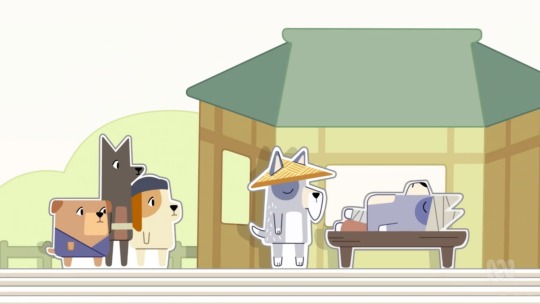
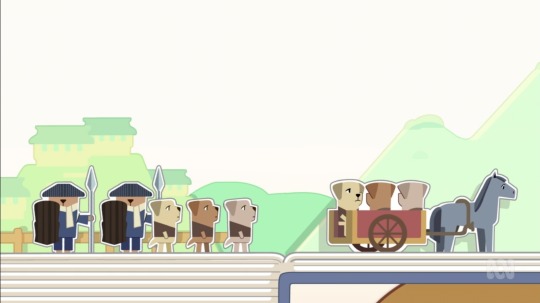
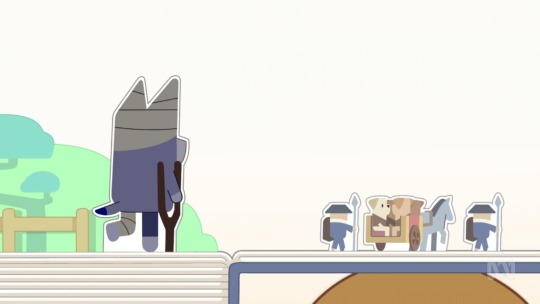
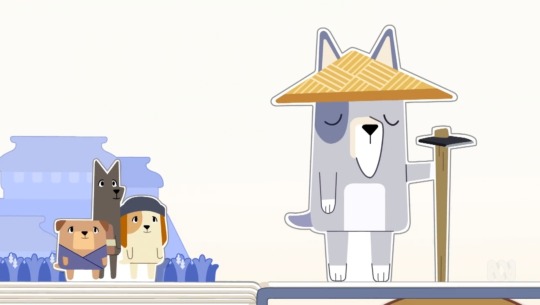
The Chinese language nerd in me was getting increasingly stoked as Calypso read out more and more of the story…I was like, wait a minute…this sounds bloody familiar…and then I had my Aha! 🙀 moment…😸
68 notes
·
View notes
Text
⭐ Featured projects of the week, Vol. 14
💐 Mix and match with decorative flowers! 🐉 Build with stunning new blocks inspired by Chinese architecture 🖥️ Get trapped in a meticulous recreation of The Stanley Parable 🤖 Pilot gargantuan high-tech mechs




All in this week's collection: https://modrinth.com/collection/of5ZXlE7
15 notes
·
View notes
Note
I want do badly to consider sun wukong a folktale, and i think it technically is? (Kinda like how we view greek myths nowadays), but MAN would my oc Táo xuè just.. not fit into silver palace at all xD i mean I can easily just not make him immortal in that iteration, which fixes rhat complication, but.. a chinese dynasty-styled warlord? That.. wouldn't fit in with the steampunk London aesthetic.... id have to rework him a lot, unless i somehow found a good enough loophole. its likely the main city isnt the only one we'll ever see/visit, but there isnt any mention or hints towards other countries and cities [so far] so not much work off of there. I'll probably put him on the back burner, at least for a while until more stuff comes out or until an idea strikes me like a peach falling from a tree

Honestly I almost completely forgot games like silver palace end up branching out from the first area, like oh shit yeah we're gonna eventually go more places maybe. Unfortunately I don't know much about your oc táo xuè, I haven't reached a point in black beacon where my memories of you talking about him make sense, I have not played much recently (curse you periods) but I do remember he had a relationship with somebody really into being immortal, I assume a canon character I haven't met yet in black beacon. I'm rambling
Honestly my first thought upon seeing this was a snapcube reference
Hyde oc: I can't see the end of the horizon-
Táo xuè:
Hyde oc: SUN WUKONG???
I honestly can't wait to see what kind of concepts they go for with other cities based elsewhere, we got London steampunk for our first city, it's not much of a pattern but it'd be neat if every city was based on somewhere plus an aesthetic because that would be cool. Also I hope the fairytale thing stays consistent, lots of fairytales outside of English ones seem to not be known much, at least in my perspective as British non-binary fucker who likes twisted fairytale games (honestly it has only been dark parables at this point.) one dark parables game is based on the fairytale of a salt princess, the king asked his three daughters their favourite thing, the two older ones answered with sugar and riches, but the youngest replied salt, the king was upset and so he banished her to the forest where she met a dead king I think? She spent years stitching him back together until only stitch over his eyes remained, her maid while she was out stitched him up and claimed she was the princess and the two got wed, making the real princess the maid, so upset every night she went into the woods where she saved another important person, a Fae I believe? My memories of the rest get fuzzy but they dance for her every night until the prince guy who married the fake finds out, cleans a Fae's sleeping body for a year to ask for a box to gift to her and that tells him the truth, he gets married to the real one and the king (her dad) finds out the true meaning of her favourite thing of salt by eating three meals, the first is too full of sugar and tastes bad, the second I forgot and the third with salt tastes great, so he accepts her back. This is mostly rambled from memory it could be wrong and honestly the game only really takes salt princess and runs with that (she turns people into magic salt in the game because... Alchemy I guess I always forget what that one is about) this was a ramble.
Basically I hope when new cities are introduced they do research on fairytales from the culture the city is from and have characters based on them!
#honestly the potential of it not being countries but cities feels really cool and fresh#it's not britain steampunk it's london steampunk#they could probably get super detailed because they can grab a big city from anywhere and go ham on making it with the chosen aesthetic#yknow if it isn't just steampunk everything#it could be for all we know#fairytale steampunk across the world#silver palace
6 notes
·
View notes
Text
Disclaimer: Most of what I know is through google research, symbolism will be Chinese due to the media’s origin unless specified otherwise.
Link click Bridon Arc/Yingdu Chapter spoilers
Opening:
Solely visual aspects:
The camera at the start of the OP is the same one Lu Guang has in his hands when he first met Cheng Xiaoshi.
Butterfly motif number 1
~ white butterfly right before Cheng Xiaoshi drags Lu Guang.
~ white butterfly symbolizes purity, healing and innocence in English. Seeing as Lu Guang gets dragged outside of his body as a younger version of himself, this is likely referring to the first timeline.
~ Butterflies overall symbolize love and romance in Chinese folk tale, which adds a lot to the common butterfly motifs.
Liu Xiao was holding open the very end of the collection of ‘Sonnets’ by William Shakespeare
~ the final Sonnet, Sonnet 154 is about unbreaking love
~ Sonnet 154 is a retelling of ‘Cupid and the torch parable’, the moral of said story being, quote, “without trust, there can be no love”
~ Sonnet 154 is often considered to be a pair with Sonnet 153.
A feather falls into (what we can assume to be) Cheng Xiaoshi’s blood
~ feathers have many spiritual meanings, but the most accurate to assume one for this context would likely be the association to otherworldliness or heavenly messages.
Everything in Lu Guang and Cheng Xiaoshi’s room burst into photographs, most of which being of jobs they’ve taken, while Lu Guang stands in the middle of the room, shielding his eyes with his arm.
Directly after the previous excerpt, there’s a montage of Cheng Xiaoshi and Qiao Ling just having fun, not much to add to this one other than it pulled on my heart strings a little bit.
We see Lu Guang standing still in a bunch of colored different settings, back to the screen. It goes to the basketball court where he and Cheng Xiaoshi met, of which was greyscale, he wipes his eyes with his arm, visibly sobbing before an arm (presumably Cheng Xiaoshi’s) grabs his wrist and drags him away, the entire scene gaining color.
What we can assume to be Lu Guang’s notebook’s pages flips backwards, all of the pages are the exact same words, until it finally reaches a different page. Atop said page is a bookmark of sorts with the word ‘Rewind’ written on it in large, clean letters, different handwriting from the journal, they look printed.
Throughout all of this, any and all appearances of Lu Guang are colored and rendered differently from the rest of the artstyle. His coloring is finicky as well.
Solely auditory aspects
“I wish I could tell you the truth”
~ There is something keeping Lu Guang from being capable of telling Cheng Xiaoshi about the time loop. (And it better not be Vein or so help me GOD)
“I stopped painting excuses red”
~ this line implies that Lu Guang, to some degree, blames himself. I believe it means that at some point he stopped blaming Cheng Xiaoshi’s deaths on the universe or things out of his control and began to blame them on himself. ‘Painting excuses’ meaning blaming it on something else, while ‘red’ refers to the danger of the world.
“Rewinding right in front of the eye”
~ someone knows of Lu Guang’s rewinds.
~ We can assume it to be one of the new evil trio, as Li Tianchen never showed any form of awareness to this fact.
“I followed every end of the signs”
~ Lu Guang has tried everything he can think of to change Cheng Xiaoshi’s fate, all of which leading to ‘dead ends’ (Cheng Xiaoshi’s death)
“But I couldn’t make it to you”
~ We can take this line either metaphorical or literal
~ On the metaphorical hand, it would simply mean that he failed, but in the literal sense it could mean that Cheng Xiaoshi was too far away to save, which also brings the question of whether thats metaphorical or literal.
“Trapped in endings I don’t want you to know”
~ I believe this is the answer to the first line, that as much as Lu Guang wants Cheng Xiaoshi to know the truth, he can’t tell him about his own deaths leading to his inability to be honest.
If you have anything to add, please say so! I would love to hear others interpretations
#link click#link click theory#link click analysis#shiguang daili ren#media analysis#i can’t believe i researched the sonnets for this shit#posting this before any info gets outdated with episode 2
15 notes
·
View notes